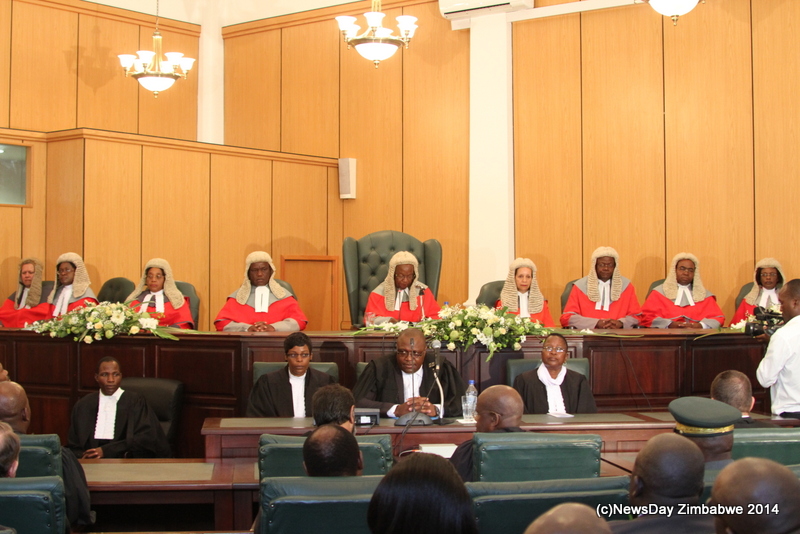
LOCAL groups working with victims of human rights violations have adopted the guiding principles for transitional justice policy and practice, laying the foundation for transitional justice processes in the country.
by Staff Reporter
The principles are expected to provide an operational framework to the National Peace and Reconciliation Commission to be set up soon.
Speaking to NewsDay after last week’s conference in Nyanga by the 48-member National Transitional Justice Working Group (NTJWG), the working group’s chairperson Alec Muchadehama said the development and adoption of the guiding principles would assist transitional justice actors synchronise their efforts in the construction of a more just society.
“The principles provide the minimum benchmarks upon which we can measure our progress or regression in respecting human rights,” Muchadehama said yesterday.
“It will also provide the government with a credible reference point for all transitional justice processes.”
Zimbabwe has not dealt with most of its past human rights violations, which span decades back from the pre-colonial era to the 1980s Matabeleland genocide to electoral violence by President Robert Mugabe’s Zanu PF government.
A lot of people have warned that government’ failure to deal with its past violations is a ticking time bomb that poses a serious threat to future stability in the country.
- Chamisa under fire over US$120K donation
- Mavhunga puts DeMbare into Chibuku quarterfinals
- Pension funds bet on Cabora Bassa oilfields
- Councils defy govt fire tender directive
Keep Reading
Muchadehama said for lasting peace to be enjoyed in the country, both victims and perpetrators must be involved in the national healing process.
“Transitional justice processes that seek to guarantee non-recurrence cannot avoid working with the offenders to achieve conflict transformation, reconciliation, healing and reintegration,” he said.
Participants at last week’s conference were drawn from civil society, victims groups, women’s groups, churches, statutory bodies such as the Law Society of Zimbabwe and the Zimbabwe
Human Rights Commission, youth organisations and trauma healers as well as transitional justice experts.
Robin Wild, the co-ordinator for a victim-based organisation Tree of Life, told the participants: “We need to ask: Where are the victims in all these processes?”
Reverend Ray Motsi said memorialisation should “never be made a private project”.
Father Fradereck Chiromba said Zimbabwe was taking long to have an inquest into its past at a time a lot of critical witnesses were dying.











